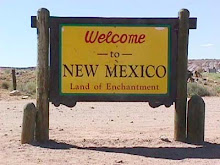Here is Wallace' conclusion:
We've been looking at several aspects of the birth of Jesus Christ in this short study. Now, we want to put it all together.
In the winter of 5 or 4 B.C., God invaded history by taking on the form of a man. He was born in a small town just south of Jerusalem. Bethlehem, which means 'the house of bread,' indeed became worthy of its name one lonely winter night. For there, in that town, was born the Bread of Life . . .
His mother placed the infant king in a manger--or feeding trough--because the guest room where they were to stay was occupied. The birth of this king was celebrated that night only by his mother, her husband, and a handful of shepherds. The shepherds had been in the fields around Bethlehem, guarding the lambs which would die at the next Passover. An angel appeared to them and gave them the birth announcement: "today in the city of David there has been born for you a Savior, who is Christ the Lord" (). In their simple faith, they rushed to see their newborn king.
Shortly after the birth of the Messiah, magi from the east arrived in Jerusalem and inquired of king Herod where the real king of the Jews was to be born. The theologians of Herod's court knew the Scriptures well--in 'Bethlehem' they recited. Ironically, though they knew the Scriptures, they did not believe them! They did not even bother to travel the five or six miles to Bethlehem to see their Messiah.
But Herod believed the Scriptures! That is why he sent a corps of butchers to Bethlehem to slaughter innocent children, in hopes of destroying this rival to his throne. But he was too late. The magi had come and gone and Jesus was by now safe in Egypt.
And the magi believed the Scriptures. They had traveled several hundred miles to worship this Babe. They were guided to Bethlehem by a supernatural celestial phenomenon--and by the Scriptures. Apparently, their ancestors had been instructed by Daniel the prophet about the coming Messiah. . . When they saw the child, they fell down and worshiped him. This was God in the flesh. They could do no other.


No comments:
Post a Comment